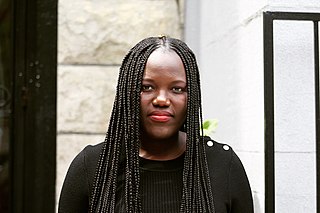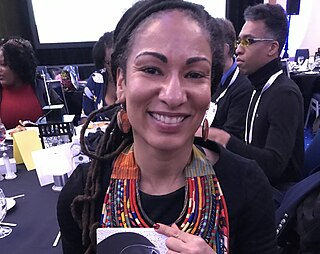
Jürgen Schmidhuber is a German computer scientist noted for his work in the field of artificial intelligence, specifically artificial neural networks. He is a scientific director of the Dalle Molle Institute for Artificial Intelligence Research in Switzerland. He is also director of the Artificial Intelligence Initiative and professor of the Computer Science program in the Computer, Electrical, and Mathematical Sciences and Engineering (CEMSE) division at the King Abdullah University of Science and Technology (KAUST) in Saudi Arabia.

Geoffrey Everest Hinton is a British-Canadian computer scientist and cognitive psychologist, most noted for his work on artificial neural networks. From 2013 to 2023, he divided his time working for Google and the University of Toronto, before publicly announcing his departure from Google in May 2023, citing concerns about the risks of artificial intelligence (AI) technology. In 2017, he co-founded and became the chief scientific advisor of the Vector Institute in Toronto.

The Conference and Workshop on Neural Information Processing Systems is a machine learning and computational neuroscience conference held every December. The conference is currently a double-track meeting that includes invited talks as well as oral and poster presentations of refereed papers, followed by parallel-track workshops that up to 2013 were held at ski resorts.
The International Conference on Machine Learning (ICML) is the leading international academic conference in machine learning. Along with NeurIPS and ICLR, it is one of the three primary conferences of high impact in machine learning and artificial intelligence research. It is supported by the (IMLS). Precise dates vary year to year, but paper submissions are generally due at the end of January, and the conference is generally held the following July. The first ICML was held 1980 in Pittsburgh.

Yann André LeCun is a Turing Award winning French-American computer scientist working primarily in the fields of machine learning, computer vision, mobile robotics and computational neuroscience. He is the Silver Professor of the Courant Institute of Mathematical Sciences at New York University and Vice-President, Chief AI Scientist at Meta.

Oren Etzioni is an American entrepreneur, Professor Emeritus of computer science, and founding CEO of the Allen Institute for Artificial Intelligence (AI2). On June 15, 2022, he announced that he will step down as CEO of AI2 effective September 30, 2022. After that time, he will continue as a board member and advisor. Etzioni will also take the position of Technical Director of the AI2 Incubator.

The Conference on Artificial General Intelligence is a meeting of researchers in the field of Artificial General Intelligence organized by the AGI Society, steered by Marcus Hutter and Ben Goertzel. It has been held annually since 2008. The conference was initiated by the 2006 Bethesda Artificial General Intelligence Workshop and has been hosted at the University of Memphis ; Arlington, Virginia ; Lugano, Switzerland ; Google headquarters in Mountain View, California ; the University of Oxford, United Kingdom ; and at Peking University, Beijing, China, Quebec City, Canada. The AGI-23 conference was held in Stockholm, Sweden.

The Future of Life Institute (FLI) is a nonprofit organization which aims to steer transformative technology towards benefiting life and away from large-scale risks, with a focus on existential risk from advanced artificial intelligence (AI). FLI's work includes grantmaking, educational outreach, and advocacy within the United Nations, United States government, and European Union institutions.

Yoshua Bengio is a Canadian computer scientist, most noted for his work on artificial neural networks and deep learning. He is a professor at the Department of Computer Science and Operations Research at the Université de Montréal and scientific director of the Montreal Institute for Learning Algorithms (MILA).

Raquel Urtasun is a professor at the University of Toronto. Urtasun uses artificial intelligence, particularly deep learning, to make vehicles and other machines perceive the world more accurately and efficiently.
The International Conference on Learning Representations (ICLR) is a machine learning conference typically held in late April or early May each year. The conference includes invited talks as well as oral and poster presentations of refereed papers. Since its inception in 2013, ICLR has employed an open peer review process to referee paper submissions. In 2019, there were 1591 paper submissions, of which 500 accepted with poster presentations (31%) and 24 with oral presentations (1.5%).. In 2021, there were 2997 paper submissions, of which 860 were accepted (29%)..

Multi-agent reinforcement learning (MARL) is a sub-field of reinforcement learning. It focuses on studying the behavior of multiple learning agents that coexist in a shared environment. Each agent is motivated by its own rewards, and does actions to advance its own interests; in some environments these interests are opposed to the interests of other agents, resulting in complex group dynamics.
Isabelle Guyon is a French-born researcher in machine learning known for her work on support-vector machines, artificial neural networks and bioinformatics. She is a Chair Professor at the University of Paris-Saclay.

Adji Bousso Dieng is a Senegalese Computer Scientist and Statistician working in the field of Artificial Intelligence. Her research bridges probabilistic graphical models and deep learning to discover meaningful structure from unlabelled data. She is currently an Artificial Intelligence Research Scientist at Google Brain in Mountain View, California. In 2021, she will start her tenure-track faculty position at Princeton University becoming the first Black female faculty member in the School of Engineering and Applied Science as well as the first Black faculty member ever in the Department of Computer Science. Dieng recently founded the non-profit “The Africa I Know” (TAIK) with the goal to inspire young Africans to pursue careers in STEM and AI by showcasing African role models, informing the general public about developments in STEM and AI by Africans, and educating the general public about the rich history of Africa.

Black in AI, formally called the Black in AI Workshop, is a technology research organization and affinity group, founded by computer scientists Timnit Gebru and Rediet Abebe in 2017. It started as a conference workshop, later pivoting into an organization. Black in AI increases the presence and inclusion of Black people in the field of artificial intelligence (AI) by creating space for sharing ideas, fostering collaborations, mentorship, and advocacy.
Samy Bengio is a Canadian computer scientist, Senior Director of AI and Machine Learning Research at Apple, and a former long-time scientist at Google known for leading a large group of researchers working in machine learning including adversarial settings. Bengio left Google shortly after the company fired his report, Timnit Gebru, without first notifying him. At the time, Bengio said that he had been "stunned" by what happened to Gebru. He is also among the three authors who developed Torch in 2002, the ancestor of PyTorch, one of today's two largest machine learning frameworks.

François Chollet is a French software engineer and artificial intelligence researcher currently working at Google. Chollet is the creator of the Keras deep-learning library, released in 2015, and a main contributor to the TensorFlow machine learning framework. His research focuses on computer vision, the application of machine learning to formal reasoning, abstraction, and how to achieve greater generality in artificial intelligence.
Meta AI is an artificial intelligence laboratory owned by Meta Platforms Inc. Meta AI develops various forms of artificial intelligence, developing augmented and artificial reality technologies. Meta AI is an academic research laboratory focused on generating knowledge for the AI community. This is in contrast to Facebook's Applied Machine Learning (AML) team, which focuses on practical applications of its products.
Mi Zhang is a computer scientist at Ohio State University, where he is an Associate Professor of Computer Science and Engineering and the director of AIoT and Machine Learning Systems Lab. He is best known for his work in Edge AI, Artificial Intelligence of Things (AIoT), machine learning systems, and mobile health.
AI safety is an interdisciplinary field concerned with preventing accidents, misuse, or other harmful consequences that could result from artificial intelligence (AI) systems. It encompasses machine ethics and AI alignment, which aim to make AI systems moral and beneficial, and AI safety encompasses technical problems including monitoring systems for risks and making them highly reliable. Beyond AI research, it involves developing norms and policies that promote safety.












